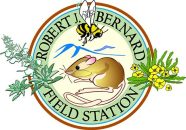McGill, Jade (2009)
The Effect of the Exotic Black Mustard Plant (Brassica nigra) on Arthropod Communities in a Coastal Sage Scrub Habitat.
Bachelor of Arts, Pomona College, Biology.
Advisor: Frances Hanzawa.
Non-native plants are steadily becoming widespread in ecosystems across the world. It is important to study the effects of these exotic plants because their presence can be detrimental to native animals; they can cause changes in soil quality and fire regimes, and make the resources on which native animals depend more scarce. Additionally, it is necessary to study the specific effects of individual invasive species in threatened ecosystems because the effects of these plants on animal taxa vary depending on the animal group studied and the habitat invaded. Thus, the goal of this study is to determine how the exotic black mustard plant (Brassica nigra) changes arthropod communities in an endangered coastal sage scrub environment. I predicted that the abundance and species richness of arthropods would be lower in patches of B. nigra, and that species composition would differ between exotic and native-dominated habitats. Pitfall traps were used to sample arthropods in native and exotic habitats. Approximately 5,000 individuals of 213 morphospecies in 24 orders were found. Contrary to predictions, there were no significant differences in species richness or total abundances of arthropods. However, there was a noticeable difference in species composition in areas with and without black mustard plants, which indicates that B. nigra does have an effect on arthropod communities in coastal sage scrub environments. However, due to problems associated with restoration in this habitat, no eradication action should be taken until further research on the proportions of exotic arthropod species in B. nigra and native patches is completed.
